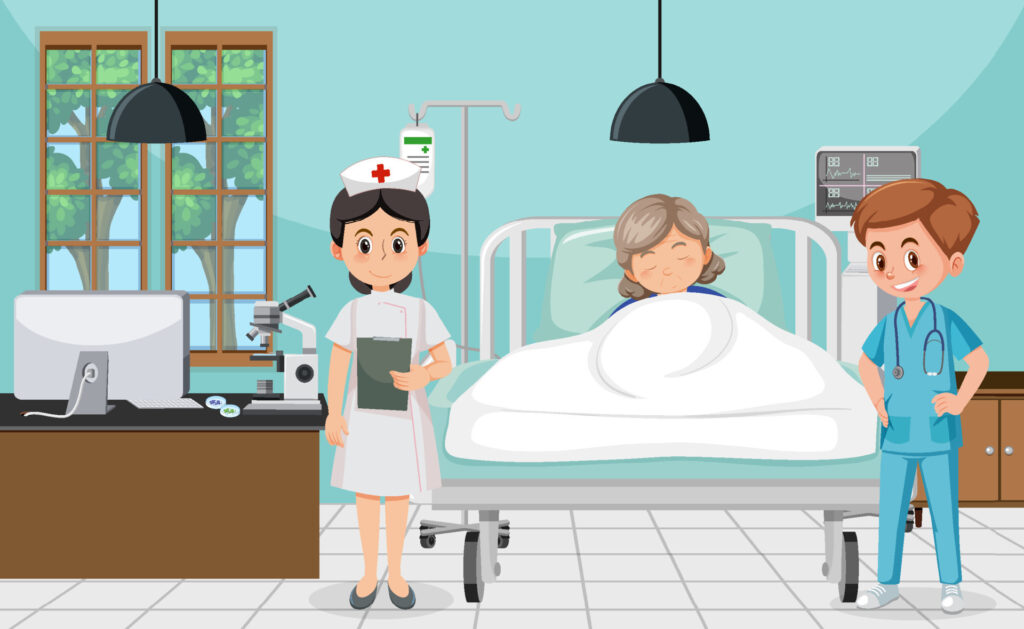Made Stress-Free Reliable Hassle-Free Convenient Pocket friendly
Request a call back
The surgery you need is
just a click away


21K +
Consultations

1180
Surgeries

100+
Partner Hospitals

10000+
Hassle-free Consultation

5000+
Smooth surgeries

500+
Expert Doctors

100+
Trusted hospitals

Affordable Fissure Surgery in Mumbai
An anal fissure is a small tear in the anal epithelium. Although fissures can affect anyone, they are most frequently seen in adults and older people. Aapkacare Health is a healthcare provider that specialises in laser fissure surgery in Mumbai. Our fissure experts take care of the minimally invasive fissure treatment with the help of medical coordinators who are available 24/7.
- Laser Treatment
- Complete Insurance Support
- Minimal pain
- No Cost EMI
- 30 Minute Procedure
About Circumcision
Doctors & Hospitals
Why aapkacare
FAQ
What is an Anal Fissure?
An anal fissure is a small tear or cut in the skin lining the anus, appearing as linear ulcers around the anal canal. They usually cause pain and bleeding, which become worse while passing stools. Constipation and diarrhoea cause fissure formation. Anal fissures may be acute or chronic and frequently recurring unless the underlying cause is resolved.

Identify the Signs of Anal Fissure
Discomfort and pain from bowel movement
A visible split or rip in the anus or the anal canal
Bright, red blood during or after a bowel movement
Unpleasant burning and itching

Discharge that smells foul
Understand the causes of Anal Fissure
The common causes of anal fissure are

Defecating hard and large stools

Constipation & straining during passing stools
Childbirth can strain the anal tissue

Chronic diarrhea leads to constant pressure on the anal tissues
Anal intercourse also results in pressure on the anal tissues

Our Experts Explain
Benefits of Laser Treatment
|
EXPERIENCE
|
OPEN SURGERY
|
LASER SURGERY
|
|---|---|---|
|
CUT
|
LONG
|
MINIMAL
|
|
PAIN
|
PAINFUL
|
MILD
|
|
STITCHES
|
MULTIPLE
|
MINIMAL
|
|
HOSPITAL STAY
|
LONG
|
ONE DAY DISCHARGE
|
|
RECOVERY
|
SLOW
|
FAST
|
Open fissure Surgery: By creating a small incision in the anal sphincter, anorectal surgeons perform open surgery to relax the anal muscle. Once the muscle is released, the anal fissure will mend. Persistent incontinence is one of the most common risks and adverse effects of open anal fissure surgery, which is a popular therapeutic option.
Laser fissure Surgery: A local or general anaesthetic is given to the patient before laser fissure surgery by the fissure specialist.
The surgeon uses a laser probe to produce infrared radiation or laser beams at the operation site which is , the anal fissure location. By enhancing blood flow to the area of the fissure, the high-energy laser beams promote quick and proper healing. Sphincterotomy is a surgery which involves cutting the sphincter muscle with a highly accurate laser beam. This lessens the stress on the fissure and promotes the healing of the injured area. The method is easy to use and heals properly. Physicians recommend lateral sphincterotomy as the most popular fissure surgery. It is the least invasive and most painless fissure surgery procedure.
Laser fissure surgery has several advantages over conventional fissure treatments. Some of the benefits include lesser cuts, and hence minimal blood loss and pain, quicker recovery, fewer hospitalisations and much lower chances of recurrence.
There’s a good chance the doctor will explain the entire course of fissure treatment to you. All you have to do is meticulously follow the directions. Inform the fissure doctor ahead of time if you have a drug allergy.
At least a week before the procedure, abstain from smoking and drinking. This will hasten and improve the speed of your post-fissure surgery recovery and healing.
Try to avoid eating substantial or large meals starting the night before the fissure surgery.
- If your doctor has prescribed any medications, you need to make sure you apply the drug at least twice or three times daily at the fissure surgery site or anal area.
- For a few days, take a break from using dry tissues to clean your anal area after bowel movements. If at all possible, try using wet wipes as an alternative.
- Consume plenty of fruits and vegetables.
- Limit your intake of alcohol and caffeine. This could aggravate the smooth operation of your bowels and upset your digestive system.
- Following the procedure, be sure to visit your fissure doctor. Making sure you are on the right recovery route can have a significant impact on your long-term health.
- Avoid any workout sessions for the first week or two after fissure surgery. Avoid lifting any heavy objects that can put a strain on your fissure surgery area.
- Take sitz baths at least three to four times daily, ideally after each bowel movement, until the fissure surgery site is healed.
- For at least a few days following fissure surgery, you may bleed or experience itching at the surgical site. Itching and little bleeding are frequent and common occurrences.
- Constipation should be avoided. Any actions that could lead to constipation should be avoided. Eat a diet high in fibre, drink plenty of water, and never hold it when you need to relieve yourself.
Anal fissures may cause pain. The sharpest part of this discomfort will come when you pass stools, and it may continue for a while after that.
Lidocaine creams and other topical painkillers can aid with localised pain, while ibuprofen and other anti-inflammatory painkillers can help with more widespread pain symptoms.
The anus muscles may relax and recover faster if you take warm showers frequently. Some pain symptoms may be lessened as a result.

About our Doctors & Hospitals
all your queries.

To consult our skilled surgeons for any problems or to undergo Fissure surgery, visit the nearest Fissure clinic in Mumbai with Aapkacare Health. You can also schedule an online appointment and speak with the doctor live on video. Make an appointment at Aapkacare Health to speak with the top Fissure surgeons in Mumbai. The Mumbai Aapkacare Health multi-speciality clinics for Fissure are sanitised, COVID-safe, and well-equipped. Book an appointment for the most advanced Fissure procedure in Mumbai.
Our Aim is to keep you healthy
Receive Expert Care
We find the finest doctors & facilities for your procedure

Zero Paperwork
We take care of all the paperwork so that you can relax

Hassle-Free Insurance
We work directly with your insurance provider for fast approvals

Get Home Sooner
Our advanced procedures help you recover faster and more safely

Are you worried about the cost of Fissure treatment?
Aapkacare Health finds you the most affordable prices for your Fissure in Mumbai. Even so, the exact cost is hard to pinpoint since your Fissure surgery cost depends on various factors such as age, medical history, type of surgery, etc. Call us today to get a personalised cost breakdown.

Your journey with Aapka Care Health


You might have a fissure if you observe constipation that lasts a long time and makes one struggle to go to the bathroom, especially if the stool is thick, hard, or dry. You should see a fissure doctor right away to get evaluated.
The fissure doctor could advise surgery if your fissure hurts or seems to be enlarging constantly. The majority of Fissure operations are performed as outpatient procedures. The surgeon will make an incision, remove or replace the tissue, and then close the wound.
However, a fissure may be the source of discomfort and agony, with signs and symptoms frequently getting worse while standing, exerting oneself, or moving heavy objects.
Anal fissures typically appear as tiny cuts or tears in the anus lining. A chronic anal fissure resembles a deep tear, but an acute anal fissure looks like a recent tear. Fleshy growths may be present inside or outside chronic anal fissures.
Anal fissures are not inherited. Anal fissures do not carry any genetic material and are not handed down through the generations. Poor anal cleanliness and constipation, as well as other lifestyle and nutritional choices, are the main causes of an anal fissure; genetics are not a key contributing factor.
Fissures can occur at any age if you live an unhealthy lifestyle.
Fiber-rich food like citrous fruits, broccoli, green leafy vegetables and Probiotic food
No. Anal fissures do not cause or predispose to colon cancer. But comparable symptoms can also be brought on by more severe illnesses. Your colon and the rectal surgeon could want more testing even after a fissure has fully healed. A colonoscopy might be performed to rule out additional causes of rectal bleeding.
The inner lining of the anus is frequently damaged during bowel movements, which leads to fissures. This may be the result of either a firm, dry bowel movement or frequent, loose bowel motions. Anal fissure development is more likely in patients with a tight anal sphincter muscle.
Anal fissures frequently result in severe pain with bleeding. This discomfort could linger for a few minutes or several hours. Because of this, many people may attempt to avoid having bowel movements to stop the pain. Additional signs include: After a bowel movement, bright red blood might be seen on the toilet paper or stool. Skin tag or small lump on the skin near the anal fissure, more common if chronic or present for more than 7 weeks.
Aapkacare Health provides trusted facilities with the best clinical outcome. Anal Fissure are one of the most common treatable, and curable health issues. We are here with a convenient surgical journey for you. Aapkacare Health is your ally as you work to improve your own health and the health of your family and friends. Aapkacare Health helps people choose the best surgical option for their medical condition and is dedicated to providing high-quality care at an affordable price. To give its clients the best care possible, Aapkacare Health has multiple clinics, together with numerous partner hospitals and 200 surgeons. For common maladies including piles, kidney stones, hernias, anal fissures, and other unsettling medical issues, Aapkacare Health offers world-class care. Additionally, Aapkacare Health assists in obtaining simple financing, such as no-cost EMI choices, and manages insurance claims and other paperwork throughout the entire process until post-surgery recovery. Our mission is to improve access to high-quality healthcare and make it convenient, inexpensive, and available to all people.
A few days after fissure surgery, the majority of patients may resume their normal routines, including going to work. It may take 4 to 8 weeks for full recovery following both medical and surgical procedures. Maintaining healthy bowel habits and eating a high-fiber diet are crucial even when the discomfort and bleeding subside. Healing may be slowed down by persistent hard or loose stools, scarring, or internal anal muscle cramps
It is extremely common for a totally healed fissure to reopen after a hard bowel movement or other injuries since fissures can quickly reoccur. It is crucial to maintain healthy bowel habits and a diet high in fibre as a continuous lifestyle change, even after the discomfort and bleeding have stopped. If the issue recurs without a clear reason, additional analysis might be necessary.
A fissure that doesn’t respond to preventative treatments needs to be reevaluated. Healing takes longer when there are ongoing hard or loose bowel motions, scarring, or internal anal muscle cramps. Anal fissure-like symptoms can also be brought on by other medical conditions such as anal tumours, infections, or inflammatory bowel disease like Crohn’s disease. Repeated tests and evaluation should be performed on patients who have ongoing anal pain to rule out these illnesses. This could involve a colonoscopy as well as a surgical examination with biopsies and tissue cultures under general anaesthesia.
No, Aapkacare Health is only a platform provider. It does not own any hospital. Aapkacare Health works in partnership with other hospitals. It uses doctors and surgeons from the hospitals or independent qualified surgeons to perform the surgeries, leveraging the medical infrastructure of the partnered hospitals.



